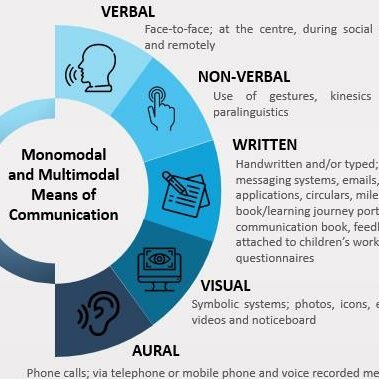Author:
Hazard (2019) highlights the importance of society in constructing the identity, literacy, and education of any student. He emphasized that learning cannot take place in isolation and is influenced by the culture, history, and society of the individual. His perspectives are aligned with Vygotsky’s sociocultural theory which states that knowledge is constructed by social interactions and cultural experiences. I believe, students belong to diverse cultures and have different societal environments which require educators to adapt their teaching methods to cater to diverse needs and foster an inclusive classroom environment.
Teaching strategies should be both flexible and culturally responsive to address the diverse needs of students. Caingcoy (2023) argues that for the academic success of students, their cultural differences should be respected, and instructional strategies should be adapted. Strategies like multimodal teaching, project-based learning, and differentiated instruction are designed to accommodate diverse needs. In my opinion, students’ lived experiences can be included in the curriculum to make the environment of the classes more inclusive and engaging.
Assessment strategies should be adapted to reflect the diverse skills and knowledge that students bring based on their culture and experiences. Hazard (2019) emphasizes the need for authentic assessments that develop “cooperative, process-oriented skills applicable to a wide range of situations” (p. 9). Shifting away from standardized testing will make assessments more personalized and provide equal learning opportunities. Formative assessments like portfolios and peer reviews are interactive and student-centered allowing students to demonstrate what they have learned and reflect on their progress.
By incorporating these strategies, educators can contribute to keeping education equitable and relevant for rapid changes in the real world. Educators can embrace socially constructed learning to foster holistic development, nurture the identities of students, and equip them with the skills required for lifelong success.
References
Caingcoy, M. E. (2023). Culturally responsive pedagogy: A systematic overview. Diversitas Journal, 8(4), 3203–3212. https://www.researchgate.net/publication/374586585_Culturally_responsive_pedagogy_A_systematic_overview
Hazard, R. (2019). Supporting 21st century skills in language and literacy classrooms with a multiliteracies approach. European Conference on Language Learning, University College London. https://www.researchgate.net/publication/346187182
Vygotsky, L. S. (1978). Mind in society: The development of higher psychological processes. Harvard University Press.

Hello, Vandana, your article effectively highlights the important of cultural diversity in education, which is crucial in today’s multicultural society. You mentioned that education should focus on authentic assessments instead of relying on testing or exams. When I was a students in China, having high scores is the only and the most important assessment, so I had to do infinite math, physics, and chemistry practices. I went though a tough period of that time. A student’ performance should be relied on multiple assessments. However, some traditional teachers would like the traditional assessment rather than the flexible standards. All in all, your opinion aligns with progressive educational trends, and it is important to keep balance between cultural diversity and academic standards.
Hi Vandana! I think your post explains your understanding of the sentence in Hazard’s article accurately, and also puts forward your ideas on teaching strategies and assessment strategies. However, could you be more specific about this opinion- ” students’ lived experiences can be included in the curriculum to make the environment of the classes more inclusive and engaging”? You also summarize what Hazard (2019) said about evaluation strategies, do you fully agree with that? Do you think students from all grades and study stages should shift away from standardized tests? What do you think of the methods of measuring student learning results after shifting away from standardized testing?
I was just trying to bring up some further discussion about this topic. I really appreciate your clear and accurate explanation and statement~